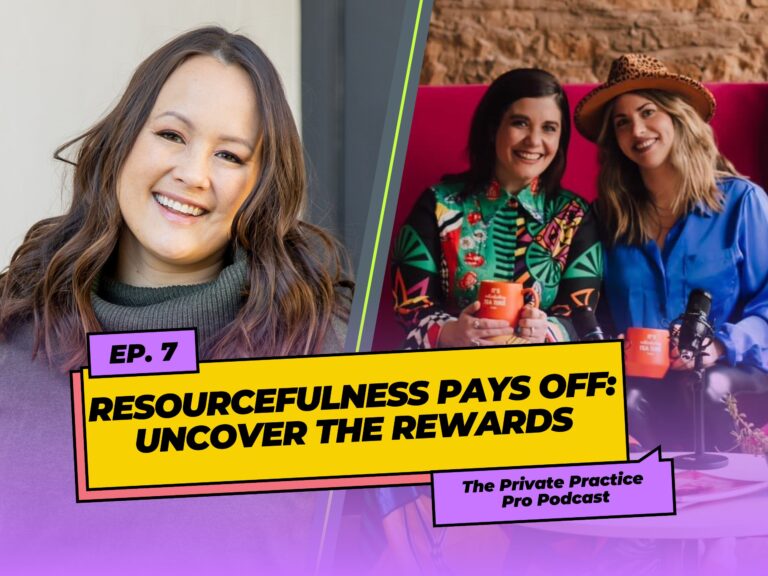Late Cancellations, No Shows, and Late Arrivals in Private Practice

How should you handle late cancellations, no shows, and late arrivals in your private practice therapy business?
Having policies and procedures in place for how to handle late cancellations, no shows, and late arrivals is an essential part of running a sustainable private practice. This article features applicable templates to get you started.
As a private practice coach, I suggest having policies and boundaries in place that you stick to 99% of the time. For those outlying circumstances that can’t be standardized, using your own therapeutic judgment is best.
Private practice boundaries allow us to build healthy, sustainable, and healing relationships with our therapy clients. If a client pushes back against one of our private practice policies, we can use their next session as a space to process these feelings. This gives our client an opportunity to see boundary setting in action, and is helpful in other instances where you might be encouraging them to respect their own boundaries. That being said, we also must recognize those occasions when we must be flexible (hello, pandemic).
There are going to be times when you feel confused about whether or not to enforce one of your policies. In these moments, I want you to take a deep breath, pause, and call or text a therapist friend for a consultation. Oftentimes, setting boundaries can trigger our own fears of scarcity. Taking a moment to call a therapist friend and ask them how they would handle a certain circumstance can give us the clarity and reassurance we need to act from our personal and professional values.
Cancellations, no-shows, and late arrivals are a reality for private practice therapists. Regardless of whether you are a LCSW, LMFT, PsyD, or PhD, having a solid plan in place will help you navigate these difficult conversations.
How I handle late arrivals and no-shows as a private practice therapist:
Step One: I list my late arrival policy in my paperwork:
“If you are running late, please contact me right away to let me know if you are on your way. If I have not heard from you within the first 20 minutes of your session, I will assume that you are a “no-show,” your session will be forfeited, and you will be billed at your full rate (even if there is time remaining in your session)”
Step Two: I give everyone one free pass on no-shows or late cancellations:
The first time a client no-shows or runs more than 20 minutes late, I cancel their appointment and let them know that I don’t begin sessions more than 20 minutes late. However, I also let them know that I give everyone ONE free pass on the fee. And I offer them another time that week to reschedule.
Step Three: If I’ve given them one free pass and they no-show again:
I hold my boundary by texting something like this, “We had a session scheduled for 9 am and it is now 9:20 so I’m going to head out, and I will have to charge you for today’s session. I hope you are doing okay, and I’m looking forward to seeing you next week.”
Step Four: If they press back against this boundary:
I say something like this,“I know that having me set this boundary can be frustrating. I would be happy to discuss this in our session next week.”
How I handle late cancellations as a private practice therapist:
Step One: The first time a client late cancels I send them this text:
“Thank you for letting me know that you won’t be able to attend our session today. Although I do have a 24-hour cancellation policy, I give all my clients one free pass. Next time, I will have to charge my fee for a late cancellation. I’m looking forward to seeing you next week.”
Step Two: The second time they late cancel I send them this text:
“Thank you for letting me know that you won’t be able to attend our session today. I have a 24 hour cancellation policy. I give each of my clients one free pass, but unfortunately you used yours on (date). So, this time I will have to charge your card for the late cancellation.”
Will some clients leave because of policies like this?
Yes! Some clients will get frustrated. Some clients will leave. And some clients will respect your policy. And this is where you need to use your best clinical judgment. There is a difference between a client who genuinely messed up and forgot your session and a client who chronically no-shows.
It is your responsibility to employ your therapeutic expertise to determine what boundaries are right for you and the population of clients you see.
This article was written by Kelley Stevens, LMFT. Kelley is a private practice business coach for therapists. Kelley specializes in helping therapists launch a cash-pay private practice from the ground up.







